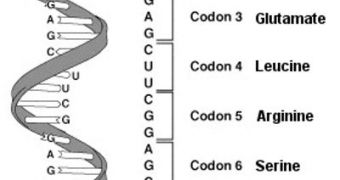A group of researchers has recently released a report suggesting that our genetic makeup may be significantly influenced by social factors. Among these influences, the researchers include things such as where we live and spend our time, as well as what we eat, drink and do in our spare time. The work was conducted by a team featuring experts from the University of St. Andrews School of Biology, the Oxford University, and the Cornell University. Details of the investigation appear in the January 19 issue of the respected scientific journal Nature Reviews Genetics, PhysOrg reports.
The work, which brings the worlds of genes and social sciences closer than ever before, seems to suggest that the role played by ourselves in our own evolution may be a lot more significant than previous research has had us believe. Until now, geneticists and evolutionary biologists have always assumed that the main “engines” of human evolution have been a host of external factors, that acted independently of our will. Among these factors, they included changes in the climate and the environment, as well as natural disasters, extinction events and genetic bottlenecks.
But University of St. Andrews Professor Kevin Laland has been accumulating a growing body of pieces of evidence that seems to suggest other factors were at play too. He and his team believe that cultural influences, as in the traditions, customs and behavior our species has developed over the millennia, may have played an equally important role. “Over the past 50,000 years humans have spread from Africa around the globe, begun to exploit agriculture, witnessed rapid increases in densities, domesticated hundreds of species of plants and animals, and by keeping animals experienced a new proximity to animal disease. Each of these transformative events has been self-imposed, but nonetheless triggered an evolutionary episode,” Laland explains.
“This new understanding of human evolution opens the door to new insights into the evolution of learning, culture, language, intelligence, cooperation, gender differences and mating systems. It suggests that our cultural development and social determinations form part of a lasting legacy that is shaping the human genome,” he adds. This line of research may open up a new way of looking at how our species evolved, and may clear some of the mysteries associated with our history since the species appeared, the team concludes.

 14 DAY TRIAL //
14 DAY TRIAL //